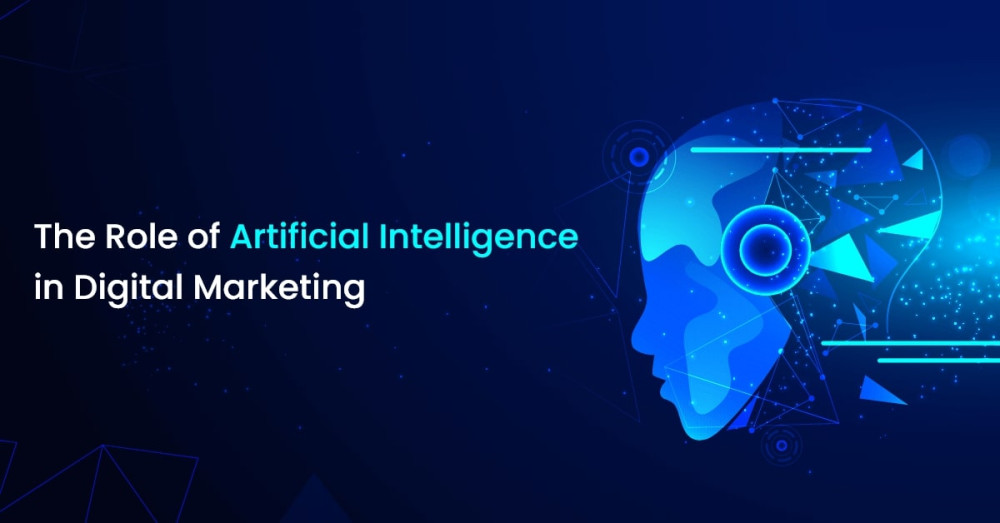The Role of Artificial Intelligence in Digital Marketing
Artificial Intelligence (AI) is revolutionizing digital marketing by enhancing how businesses understand and engage with their audiences. AI technologies are reshaping marketing strategies, optimizing campaigns, and providing deeper insights into consumer behavior. This blog post explores the role of AI in digital marketing, highlighting its impact, applications, and benefits.
What is Artificial Intelligence?
Artificial Intelligence refers to the simulation of human intelligence in machines that are programmed to think and learn. AI encompasses various technologies, including machine learning, natural language processing (NLP), and neural networks, which enable computers to perform tasks that typically require human intelligence.
Key Applications of AI in Digital Marketing
1. Personalization
AI enables marketers to deliver highly personalized content and experiences to their audience. By analyzing user data and behavior, AI algorithms can tailor recommendations, advertisements, and content to individual preferences.
Content Recommendations: AI-driven recommendation engines suggest products or content based on a user’s browsing history and preferences. For instance, platforms like Netflix and Amazon use AI to recommend shows and products.
Email Personalization: AI can personalize email marketing by segmenting audiences and creating targeted messages. Automated systems can optimize send times and content based on user interactions.
2. Chatbots and Virtual Assistants
Chatbots and virtual assistants powered by AI provide instant customer support and enhance user experience. They can handle a range of tasks, from answering frequently asked questions to guiding users through complex processes.
24/7 Support: AI chatbots offer round-the-clock support, addressing customer queries and providing assistance even outside business hours.
Lead Generation: Chatbots can engage website visitors, qualify leads, and schedule appointments, helping businesses streamline their sales processes.
3. Predictive Analytics
Predictive analytics uses AI to analyze historical data and predict future trends. By leveraging machine learning algorithms, businesses can forecast customer behavior, market trends, and campaign performance.
Customer Behavior: AI can predict customer churn, identify potential high-value customers, and recommend retention strategies based on historical data.
Market Trends: AI tools analyze market trends and consumer preferences to help businesses adjust their strategies and stay competitive.
4. Content Creation and Optimization
AI can assist in creating and optimizing content by analyzing user engagement and providing insights for improvement. AI tools can generate content, suggest topics, and optimize SEO.
Content Generation: AI-powered tools can generate written content, such as blog posts and product descriptions, based on predefined parameters.
SEO Optimization: AI can analyze search engine algorithms and suggest keywords, meta descriptions, and content improvements to enhance search engine rankings.
5. Ad Targeting and Optimization
AI enhances ad targeting and optimization by analyzing user data and predicting which ads will perform best. This leads to more effective ad campaigns and better return on investment (ROI).
Programmatic Advertising: AI algorithms automate ad buying and placement, ensuring that ads reach the right audience at the right time.
Dynamic Ad Creation: AI can create personalized ad variations based on user data, improving engagement and conversion rates.
6. Sentiment Analysis
Sentiment analysis uses AI to analyze social media conversations, reviews, and other user-generated content to gauge public sentiment towards a brand or product.
Brand Monitoring: AI tools track and analyze online mentions of a brand, helping businesses understand public perception and respond to potential issues.
Customer Feedback: Sentiment analysis provides insights into customer feedback, enabling businesses to address concerns and improve their offerings.
Benefits of AI in Digital Marketing
1. Enhanced Efficiency
AI automates repetitive tasks and processes, freeing up time for marketers to focus on strategic activities. Automation improves efficiency in areas such as data analysis, content creation, and campaign management.
2. Improved Accuracy
AI-driven algorithms analyze vast amounts of data with high accuracy, providing valuable insights and predictions. This leads to more precise targeting, better decision-making, and optimized marketing strategies.
3. Increased Engagement
Personalized content and targeted advertising powered by AI lead to higher engagement rates. By delivering relevant messages to the right audience, businesses can build stronger relationships with their customers.
4. Cost Savings
AI reduces the need for manual intervention and optimizes resource allocation, leading to cost savings. Automated systems minimize errors and improve the efficiency of marketing campaigns.
5. Data-Driven Insights
AI provides actionable insights by analyzing complex data sets and identifying patterns. These insights help businesses understand their audience, measure campaign performance, and make data-driven decisions.
Challenges and Considerations
While AI offers numerous benefits, businesses should be aware of potential challenges:
Data Privacy: Ensuring the privacy and security of user data is crucial. Businesses must comply with data protection regulations and maintain transparency in data collection practices.
Implementation Costs: Implementing AI technologies can involve significant costs. Businesses should assess their budget and choose AI solutions that align with their needs and objectives.
Human Oversight: While AI can automate many tasks, human oversight is still essential. Marketers should monitor AI systems, review outputs, and make strategic decisions based on human judgment.
Artificial Intelligence is transforming digital marketing by enabling businesses to deliver personalized experiences, optimize campaigns, and gain valuable insights. From chatbots and predictive analytics to content creation and ad targeting, AI technologies enhance marketing efficiency and effectiveness. By leveraging AI, businesses can stay ahead in a competitive landscape and build stronger connections with their audience. However, it's important to balance AI automation with human oversight and prioritize data privacy to maximize the benefits of AI in digital marketing.


